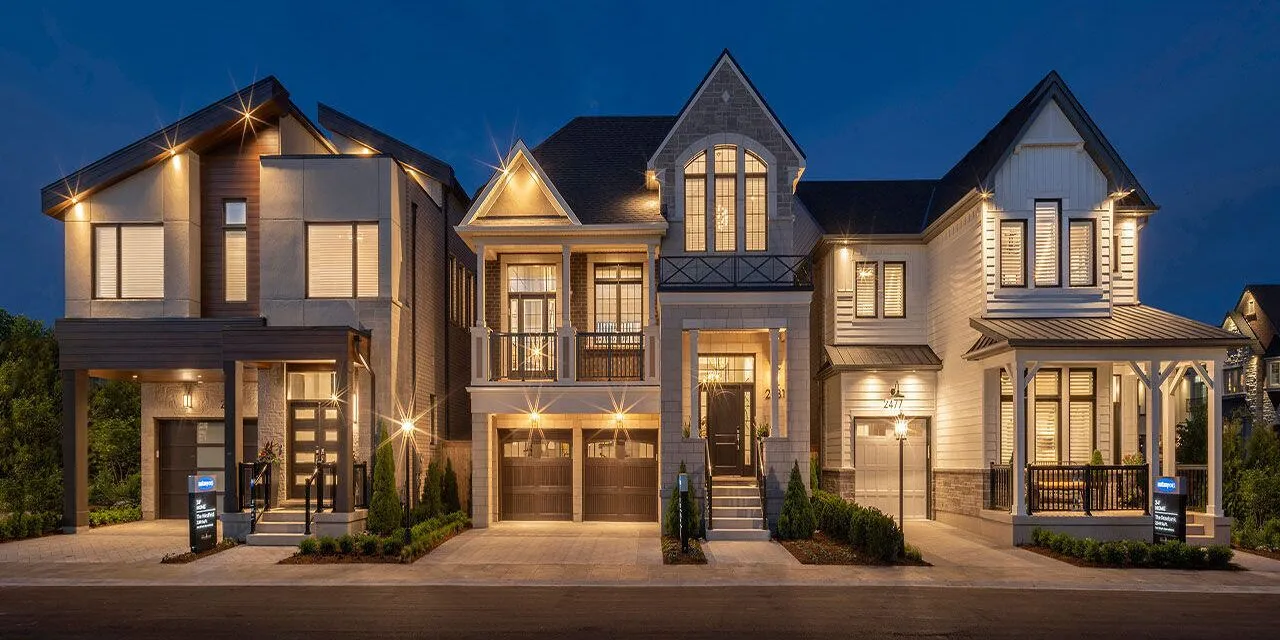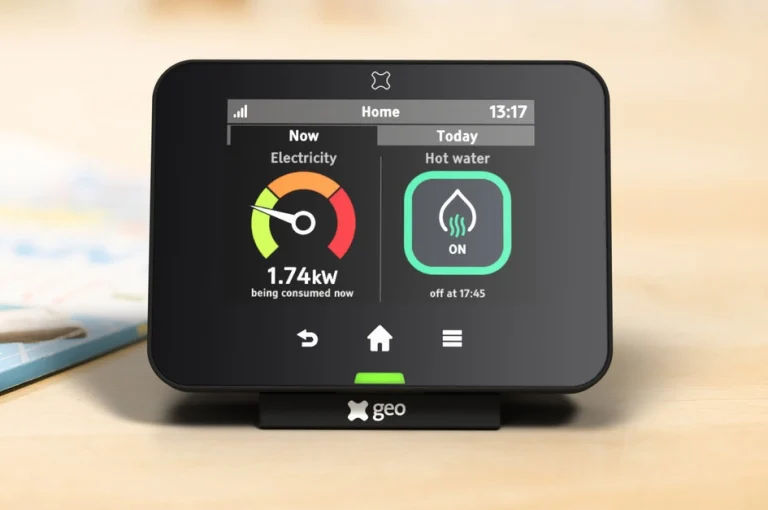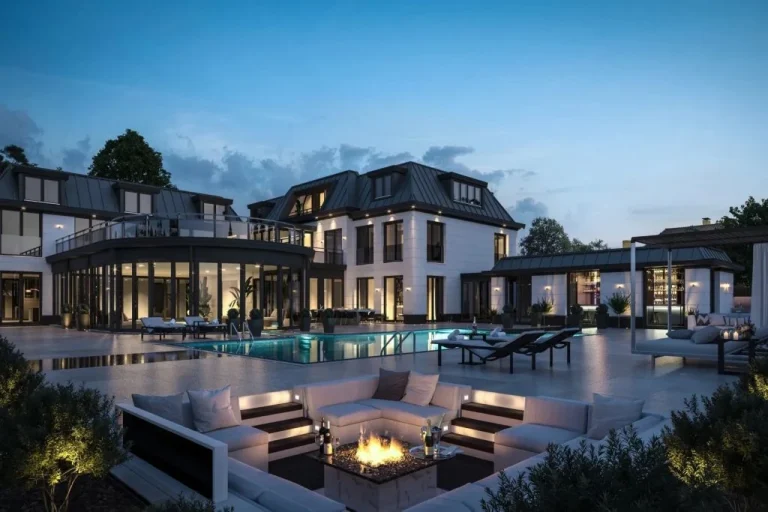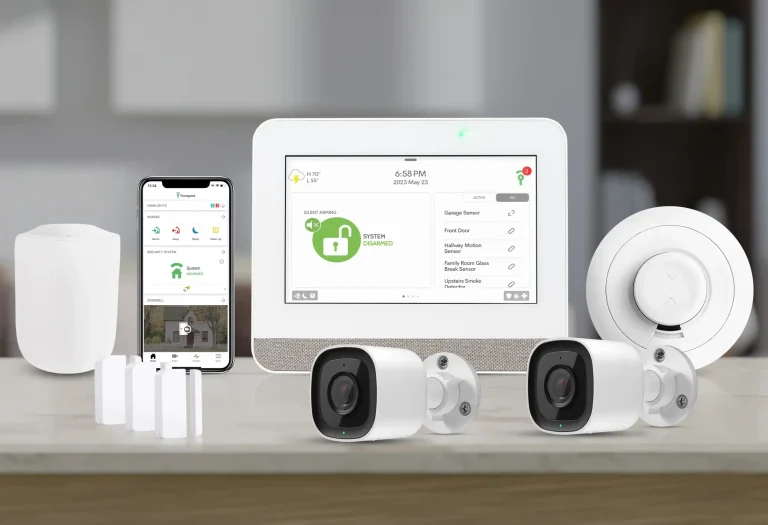Buy Preconstruction Detached Homes: Ultimate Guide, Benefits & Listings
How to Buy Preconstruction Detached Homes: Complete Guide for Homebuyers & Investors
Understanding What “Preconstruction Detached Homes” Means
The phrase “preconstruction detached homes” refers to single-family houses built from the ground up, where you buy during or before construction begins. “Detached” means the home stands alone and shares no walls with adjacent units. During the preconstruction phase, buyers often have the opportunity to influence finishes, layout upgrades, and customization options that would not be possible in resale homes.
Unlike resale houses, where the structure is already complete and features are fixed, a preconstruction detached home is a form of off-plan purchase. Developers sell lots or units in advance, financing construction through buyer deposits and development loans. This gives you a chance to enter at an earlier price point than the fully built version might command in future markets.
Preconstruction detached homes are common in growing cities and suburbs, especially where land is still available for new developments. For example, in the Greater Toronto Area (GTA), detached new-build listings are being marketed in suburbs like Vaughan, Richmond Hill, and Barrie.
Because you’re buying ahead of completion, you often have to contend with risks around construction delays, developer quality, and market fluctuations. But if done properly, it can yield strong value appreciation and a home tailored to your preferences.
Why Buyers Choose Preconstruction Detached Homes
Strong Potential for Value Appreciation
One major reason buyers opt for preconstruction detached homes is the opportunity for price appreciation. When buying early in the development cycle, your purchase price is typically lower than market value when the project completes. As home prices in the region rise during construction, your equity may grow even before you move in.
Additionally, detached houses because they include land and greater privacy tend to appreciate more compared to attached or multi-unit homes. The land component often appreciates even if the building depreciates slightly over time. In many markets, detached homes retain value strongly.
Design Flexibility & Customization
A preconstruction purchase allows you to intervene early in the design and finishes. You may have choice over flooring, kitchen cabinetry, wall colors, tile options, and even minor layout adjustments (within structural constraints). This customization is rarely possible with resale homes. Buyers who care about aesthetics or want to future-proof their home often value this flexibility.
Lower Upfront Competition & Better Pricing
By going early, you may avoid bidding wars common in resale markets. Developers often offer prelaunch or VIP pricing incentives to early buyers. That pricing window can yield cost savings or bonuses (e.g., appliance packages, upgrades). Because the market hasn’t fully reacted yet, you may secure a more favorable deal.
Improved Energy Efficiency & Modern Amenities
New construction tends to incorporate up-to-date building codes, better insulation, energy-efficient windows, and mechanical systems. You may get modern HVAC systems, smart home wiring, and greener materials by default. Because you’re building new, you can integrate the latest technologies rather than retrofitting.
Reduced Maintenance & “Move-in Ready” Condition
Since the home is brand new, you won’t face hidden defects, aging appliances, outdated materials, or deferred maintenance. Everything from plumbing to structural elements starts fresh. Many developers also include warranties for structural defects, which gives additional protection against costly issues.
Risks & Challenges in Buying Preconstruction Detached Homes
While the benefits are compelling, purchasers must be cautious. Below are common risks and what to watch out for.
Construction Delays & Completion Uncertainty
One of the most frequent issues is schedule slippage. Projects may be delayed due to permitting, labor shortages, supply chain disruption, or financing hiccups. Delays can shift your move-in date, affect interim housing costs, or even increase interest/holding costs if you’re paying for temporary housing.
Developer Reliability & Quality Assurance
The reputation and financial solidity of the developer matter significantly. If the developer faces financial trouble or cuts corners, the project quality may suffer or worst case, the project might stall. In some markets, buyers have lost deposits when developers go bankrupt or exit.
Always vet the builder’s track record, check references, review past builds, and verify that they have sufficient capital reserves or project insurance. Make sure legal contracts include clear performance guarantees or escrow protections.
Market Risk & Price Fluctuations
If real estate prices in the region fall or stagnate during construction, you may find that your purchase ends up overpriced relative to comparable resale homes. Also, higher interest rates or macroeconomic changes may suppress buyer demand. Your timing and market outlook are critical.
Inability to See Finished Product
Because the home is not yet built, you cannot physically inspect the final workmanship. You must rely on architectural plans, sample units, or models. That introduces uncertainty in terms of finishes, construction tolerances, and material quality.
Financing & Deposit Exposure
Preconstruction deals often require phased deposits (for example, 5–10% at contract, then incremental payments). If you default or the developer fails, your exposure depends on how the contract handles deposits. In some jurisdictions, deposit insurance might only protect a portion of your funds.
It’s important your contract includes clear refund terms, conditions for renegotiation, and penalty provisions if schedules are delayed by the developer.
Real-World Examples of Preconstruction Detached Home Developments
Below are real project examples (or illustrative analogues) of preconstruction detached homes. For each, I discuss features, strengths, and context.
Empire Riverland by Empire Communities (Ontario)
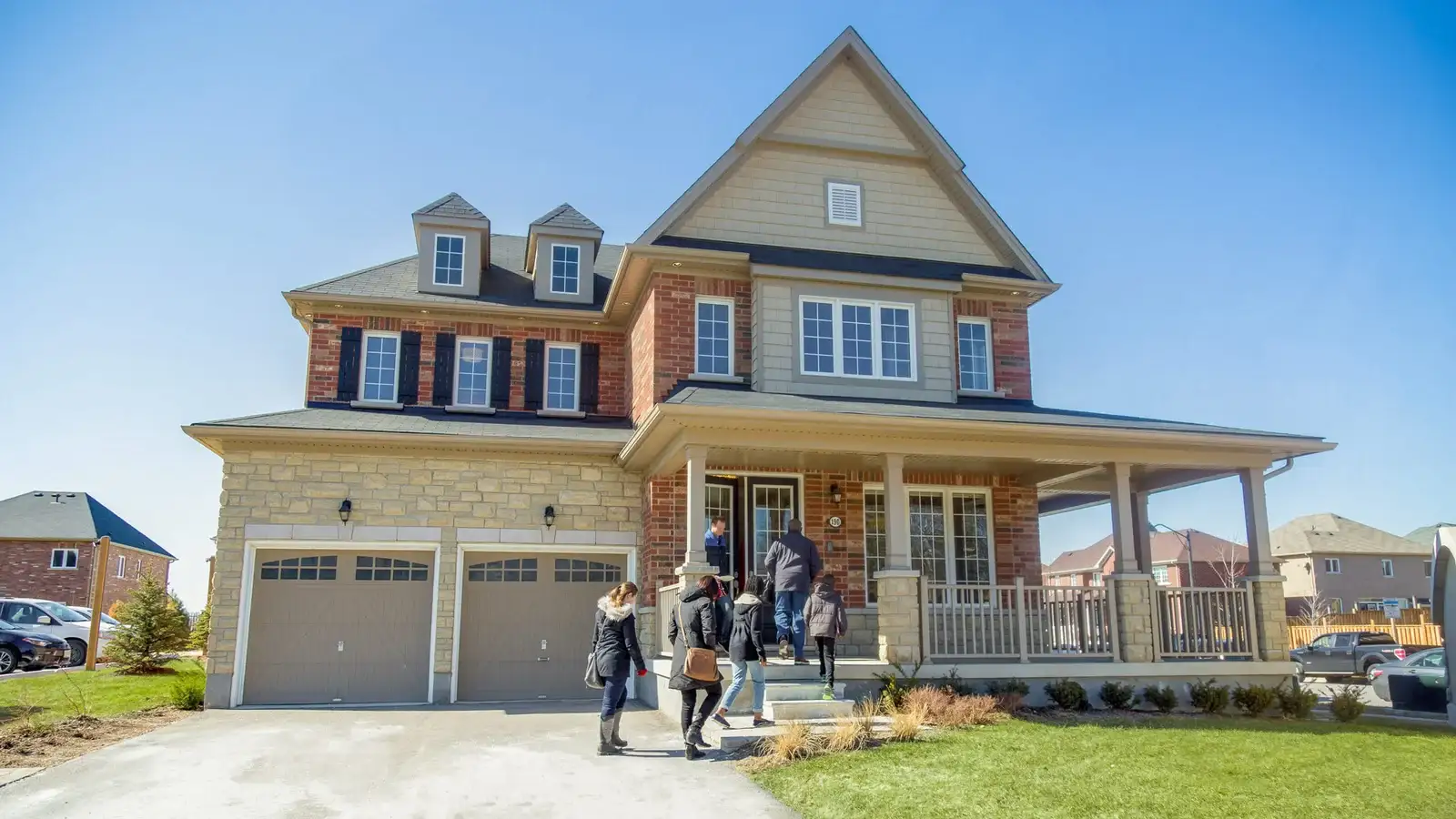
This development, offering both detached and townhome units, is marketed in Breslau, Ontario. It includes preconstruction detached homes starting from around CA $749,990.
The project emphasizes access to urban amenities, schools, and transit, while offering suburban space. It allows prospective buyers to secure a lot and choose finishing options during construction. Because it is part of a mixed community development, purchasers benefit from planned amenities, roads, and infrastructure.
Oxford Estates in Richmond Hill
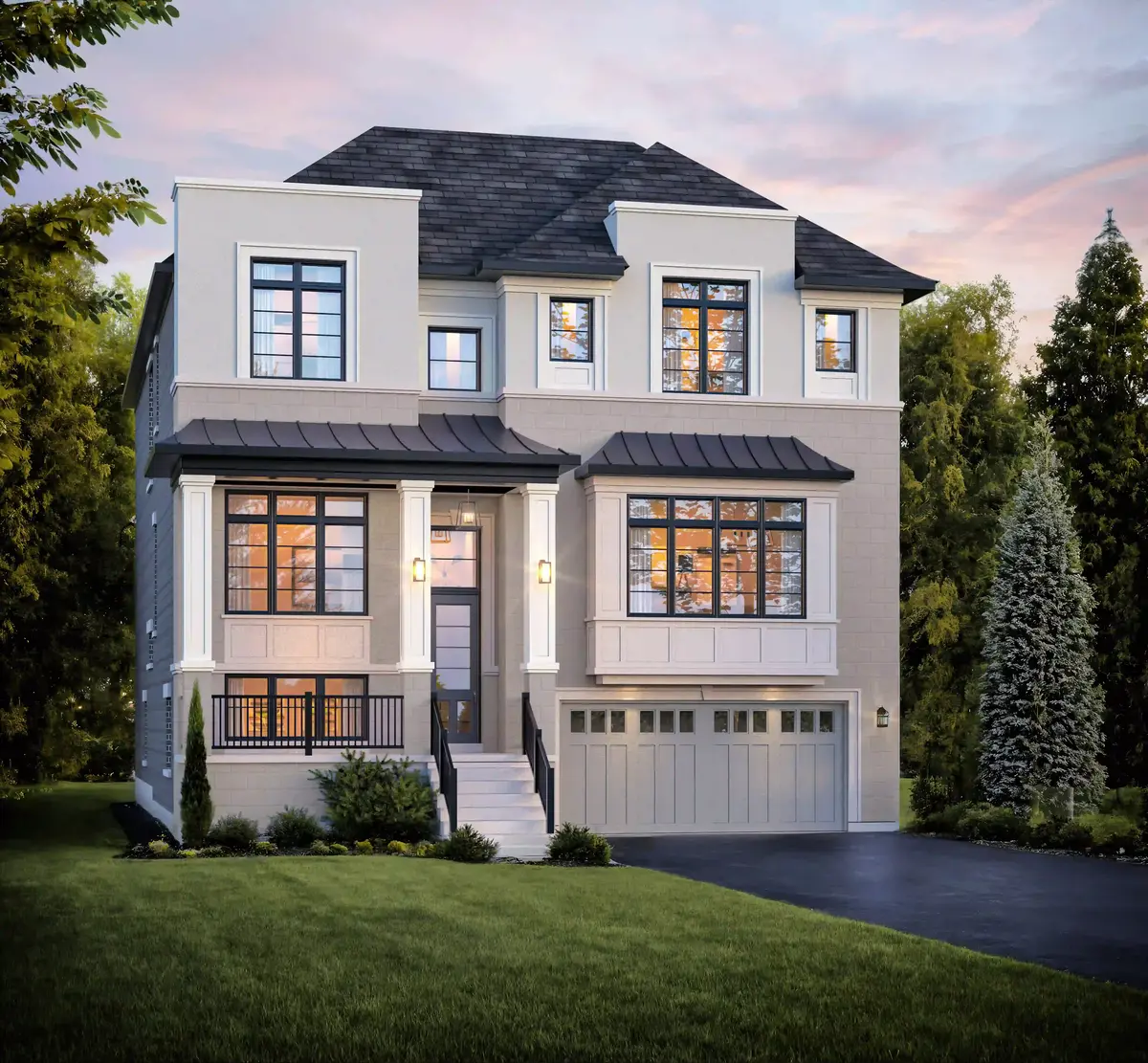
Oxford Estates is a high-end detached home development in the Richmond Hill area. It promises luxury finishes, proximity to prime shopping and transit, and high architectural standards.
Given its premium market, pricing is likely higher, but the brand and location lend prestige and resale edge. Buyers here expect upscale workmanship, design flexibility, and long-term value.
Terra in Barrie, ON
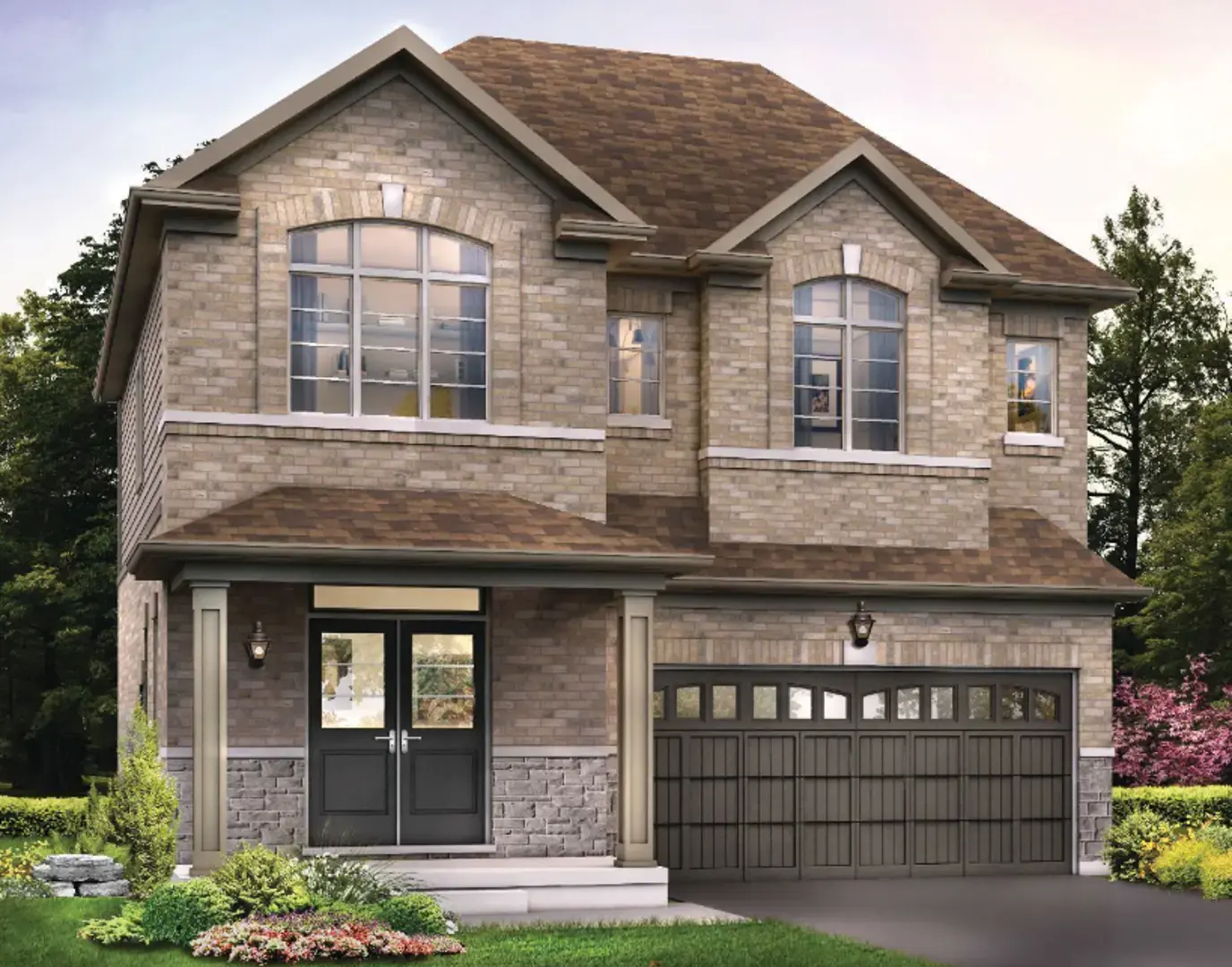
Terra is a preconstruction 38’ detached home development in Barrie, Ontario. It is listed among new detached homes in the GTA region, offering about CA $806,900 and up.
Because Barrie is on the fringe of the GTA, this development appeals to buyers seeking somewhat lower cost but still access to urban job centers. The tradeoff is commuting distance versus home quality and space.
Kitchener New Construction
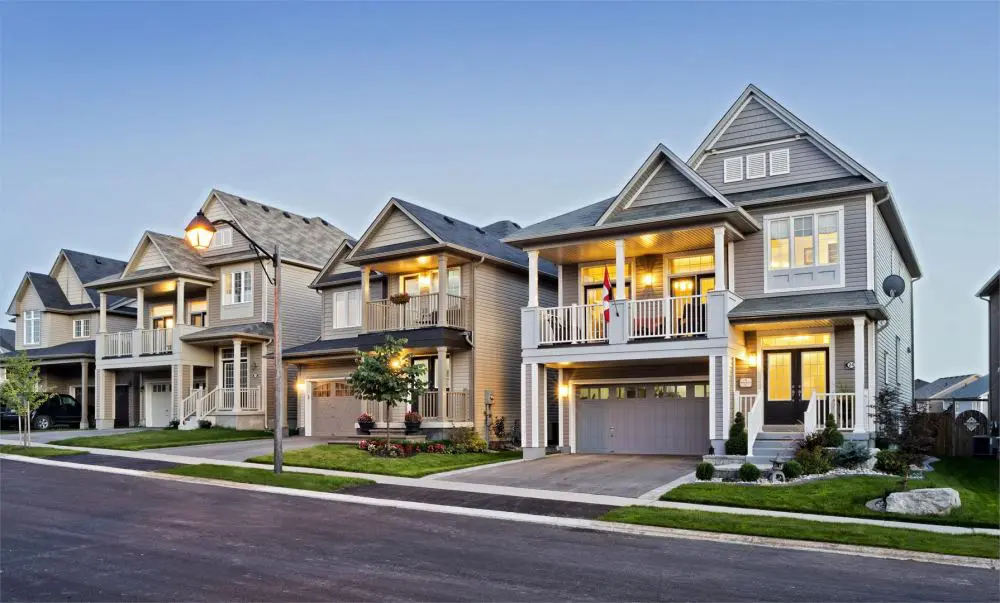
Across Ontario, new construction homes slated for 2025 include detached units in cities like Kitchener, Milton, and Hamilton, with price points starting from CA $999,000+ depending on neighborhoods.
These projects capitalize on spillover growth from Toronto, where limited land in core areas forces growth outward. Buyers thus get more value for space in these satellite markets.
Custom Detached Home Projects via Local Builders
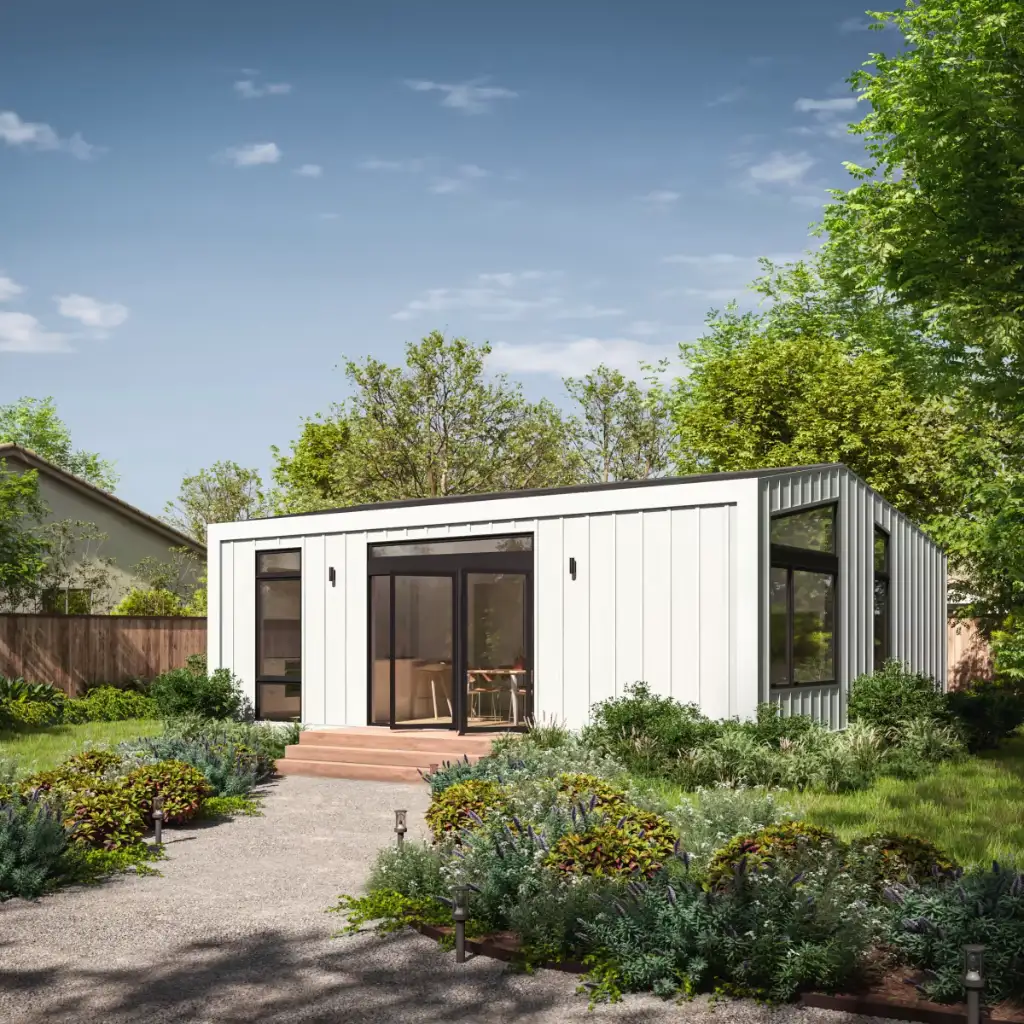
In many markets, small to mid-size builders offer “custom start” detached homes in new subdivisions. You select your lot early, choose your finishes, and the builder constructs your home. These may not always be large tract developments, but they are real preconstruction detached homes.
These custom projects appeal to buyers who want even more influence over design, layout, and quality control. You work closely with builder, architect, and interior designer during the construction process.
Benefits of Preconstruction Detached Homes in Depth
Privacy, Noise Insulation & Full Lot Usage
Detached homes give you complete separation from neighbors, which means no shared walls and usually no shared floors/ceilings. This means fewer noise issues, more control over maintenance, and full usage of side yards, front yards, and backyards without encumbrances. This is particularly valuable if you plan to extend, add landscaping, or install amenities like a pool, outdoor theater, or workshops.
Better Control Over Quality & Technology
Since you are involved during construction, you can specify high-quality materials, energy-efficient windows, smart wiring, HVAC systems, insulation, and advanced home automation. Instead of retrofitting later, you can integrate from the start, saving on costs and disruptions.
For example, you might specify triple-pane windows, geothermal heating, solar-ready roof, or smart home wiring infrastructure. Because the builder is working fresh, it’s easier to run conduits, plan circuits, and embed hidden systems without visible compromise.
Lower Maintenance & Fewer Repairs in Early Years
Because every component is new plumbing, electrical, roofing, structural elements you have a “clean slate” with minimal deferred repairs. For the first decade or so, you’re less likely to encounter hidden structural issues, leaks, or outdated systems. Many developers also offer warranties (e.g. 10-year structural) to protect your investment against major defects.
During your early ownership, you’ll primarily just manage customary upkeep like landscaping, painting, and user upgrades not big surprises.
Phased Deposit & Financing Strategy
One advantage is spreading your deposit payments over the construction period rather than paying full upfront. This allows you to manage cash flow better. Some buyers use bridging finance, staggered mortgages, or interim accommodations before the home is ready.
Also, because the home is not complete, your mortgage may not start until occupancy, saving you interest expense during construction (depending on local practices).
Market Timing & Equity Growth Before Move-In
If the real estate market appreciates during the construction period, your home may already be worth more than your outstanding costs by the time you take possession. That gives you built-in equity. It’s as though a portion of your down payment and effort effectively earns investment return before you even move in.
Use Cases & Problems Solved by Preconstruction Detached Homes
For Growing Families Who Want Future Flexibility
If your family is expanding or you anticipate needing extra rooms later (e.g. for aging parents, offices, or guests), choosing a lot early allows you to plug in designs that can adapt. Because the build is still in progress, you can allocate spaces now rather than retrofit later at much higher cost.
For Buyers Who Want to Move Into a Brand-New Home
Many buyers hate the idea of buying someone else’s home with wear and tear. Preconstruction detached homes deliver brand-new infrastructure, appliances, finishes, and systems. You are the first occupant—no surprises from prior usage.
For Investors Seeking Appreciation & Rental Income
If you intend to hold or rent the home later, preconstruction gives you more control, and if the market grows, the home might generate higher returns. A well-built detached home in a growing area can be attractive for families as renters want privacy, yard, reliable structure, and modern amenities.
For Buyers in Expanding or Suburban Areas
In many cities, the core is saturated. Developers push outward to suburbs or new corridors. Buying preconstruction in these areas gives you access to more land, lower per-square-foot pricing, and the chance to benefit from future infrastructure growth (roads, transit, amenities).
For Buyers Who Want Premium Finishes Without Paying Resale Premiums
Because you’re buying during construction, you often access upgrade options (cabinetry, flooring, lighting) at developer cost or promotional discount. If you were to retrofit a resale house later, premium finishes often cost more (and require modifications). Preconstruction allows you to build in style from the outset.
How to Buy & Where to Find Preconstruction Detached Homes
Here is a step-by-step process and places to look.
-
Research Growth Corridors & Master Plans
Look at city or regional growth plans, transit expansions, and infrastructure projects. Areas near future highways, transit lines, or commercial hubs tend to appreciate. -
Locate reputable developers & builders
Investigate local developers with a track record. Check their past completed projects, quality, customer testimonials, and litigation history. -
Attend new project launches / VIP prelaunch events
Developers often host preview events for early buyers, offering preferential pricing or bonus upgrade packages. Be on mailing lists or local real estate forums. -
Review model homes, show suites, and sample units
Walk through model homes or show suites provided in projects. That gives you real sense of finishes, layout, and quality. Ask questions and see what upgrades are allowed. -
Scrutinize the sales contract & deposit schedule
Ensure it includes protections: escrow of deposits, penalties for delay, cancellation rights, refund terms, quality guarantee, and warranty coverage. Seek legal review from a real estate attorney. -
Plan your financing & bridging solutions
You may need interim loans, construction mortgages, or staged financing. Scope out your lender options and confirm that banks accept preconstruction liens or mortgages. -
Monitor construction & quality inspections
During construction, visit the site, hire independent inspectors at key stages (foundation, framing, mechanicals). Ensure your specifications are followed. -
Do final walkthrough, snagging, and acceptance
Inspect workmanship, finishes, and systems. Compile a “punch list” of deficiencies and demands repair before final handover.
Places to search
-
NewHomeSource an extensive national database of new and preconstruction homes.
-
Local real estate listings in your region’s growth corridors
-
Developer websites and VIP mailing lists in your city
-
Real estate developer showrooms / realty offices
-
Master plan communities and builder consortia
Key Criteria to Compare Among Preconstruction Detached Home Projects
When evaluating multiple projects, you should compare based on:
-
Lot size, orientation & setbacks
-
Base and upgrade finish inclusions (flooring, lighting, appliances)
-
Structural warranty, performance guarantees, and insurance
-
Deposit schedule & refund / cancellation terms
-
Quality of builder / subcontractor reputation
-
Proximity to schools, transit, amenities, and growth zones
-
Community infrastructure, road planning, and future phases
-
Energy efficiency, insulation, window quality, mechanical systems
-
Flexibility to customize layout or finishes
-
Historical price trends and projected appreciation in area
By scoring or ranking these criteria, you can make a more objective decision among competing preconstruction detached home options.
Frequently Asked Questions
Q1: How early should I buy a preconstruction detached home?
A1: Ideally as early as possible during the prelaunch or lot release because prices tend to increase as the project develops and demand grows. Early buyers often get the best options and pricing. However, buying too early might carry higher risk, so weigh developer reliability and market prospects carefully.
Q2: What happens if the developer delays or fails to complete the project?
A2: You must rely on the protections in your purchase agreement. Good contracts include penalties or compensation for delays, escrowed deposits that can be refunded, and structural warranties. If the developer becomes insolvent, you might need to claim through legal avenues. That’s why vetting the developer’s financial stability and including contract safeguards is essential.
Q3: Can I sell my preconstruction detached home before it’s finished?
A3: Yes, in many markets it’s allowed to assign your contract to another buyer. That means you transfer your rights (and obligations) to someone else, often for a fee. But assignment rights must be explicitly allowed in the contract. Also, the market conditions at the time of assignment will affect how much you can sell for (profit or loss).
